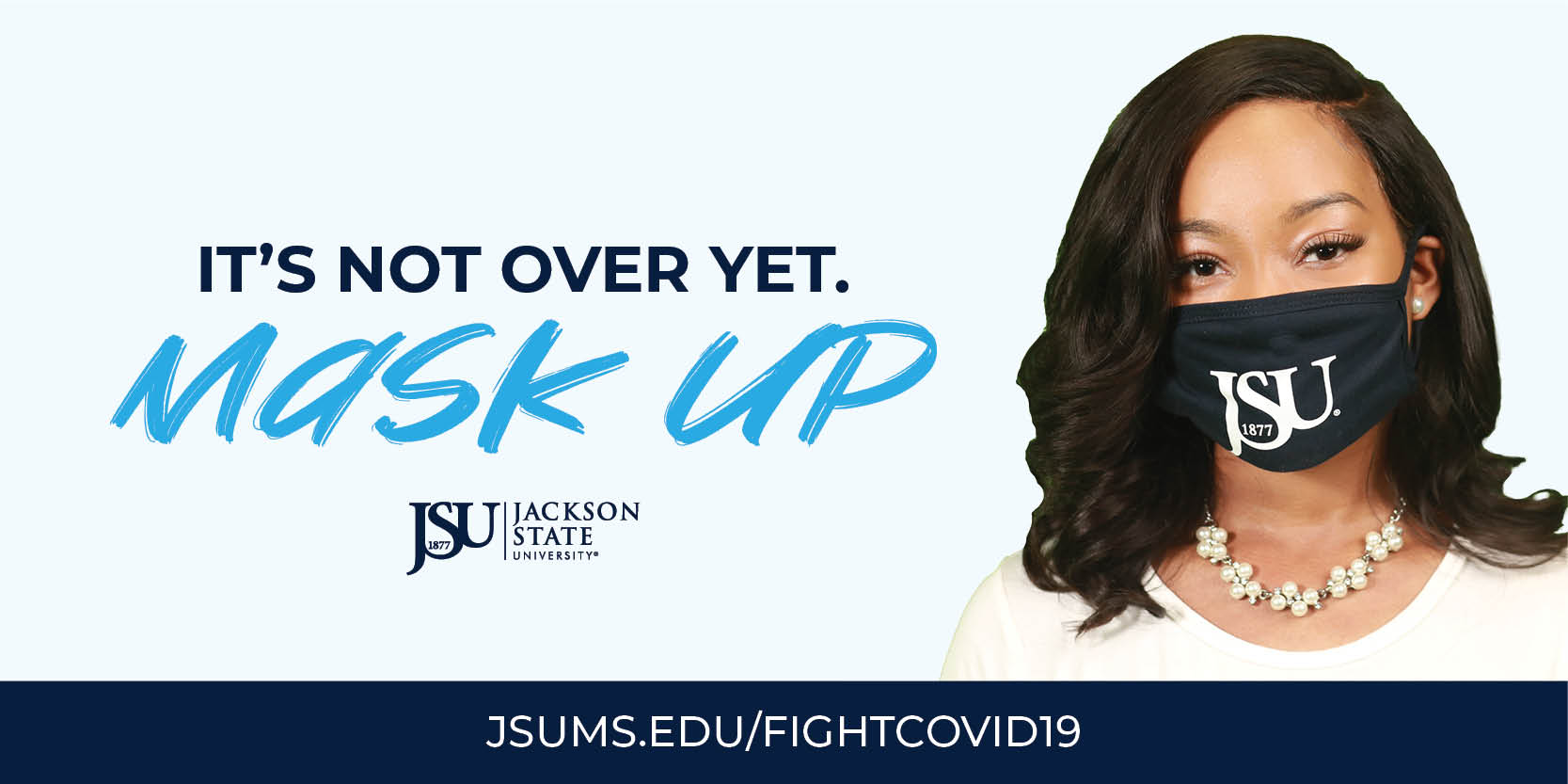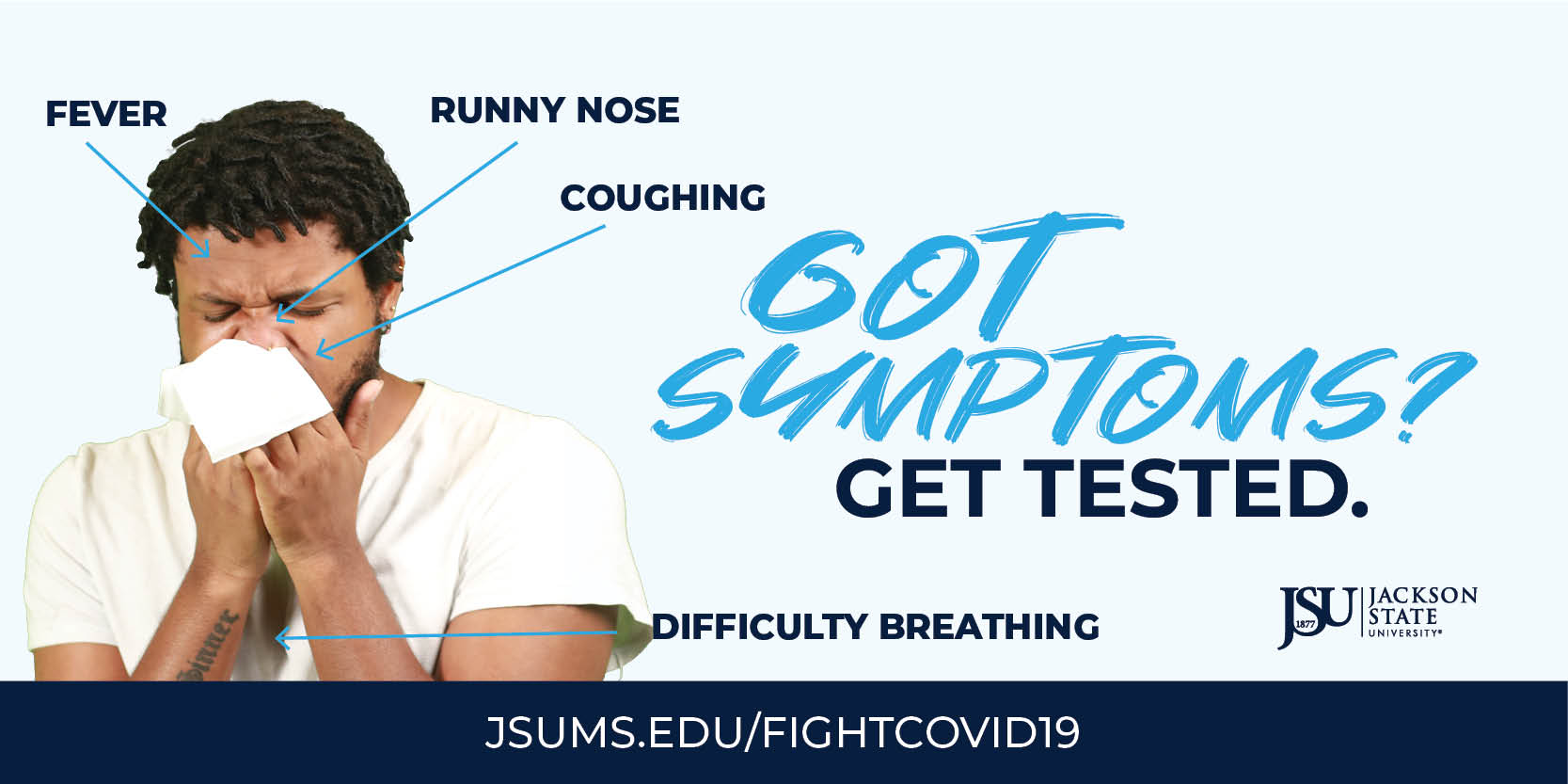
![]()
[hr]The CDC Foundation has entered a cooperative agreement with Jackson State University, providing $420,000 to develop a marketing campaign this fall to reduce and prevent the disproportionate COVID-19 transmissions among African Americans ages 18-29 in Hinds, Madison and Rankin counties. These three counties have experienced the highest rate of transmissions in Mississippi.

Hinds County, where Blacks comprise 73 percent of the population, had the most infections in the Magnolia state at 5,100 over the summer. And, even though the number of Blacks are far fewer in Madison and Rankin counties, their COVID-19 cases were disturbingly higher at 28.8 percent and 52.4 percent, respectively, than that of whites.
To date, 1,443 Blacks have died in Mississippi compared to 1,497 whites, according to the Mississippi State Department of Health. To put those numbers in greater perspective, the Black population in Mississippi is 37.8 percent versus 59.1 percent for whites. So, JSU experts say the infection and death rates are alarming, particularly among Blacks.
JSU, with support from the CDC Foundation, is implementing this wide-reaching campaign to counter these health disparities and raise awareness and change behaviors to combat COVID-19.
JSU President Thomas K. Hudson said the institution is ideally positioned to address this deadly pandemic.

“Jackson State University has the only School of Public Health in Mississippi to deal with this extraordinary pandemic. Funding from the CDC Foundation will enable our public health professionals and students to address the high rate of infections among our young adults ages 18-29. The CDC Foundation’s cooperative agreement will help our marketing campaign target this demographic and protect our older, vulnerable population that is disproportionately affected. This cooperative agreement is vital to saving lives.”
Dr. Alisa Mosley, interim provost and JSU’s vice president for Academic Affairs, said, “Jackson State University prides itself on community outreach. We’re ecstatic about the partnership with the CDC Foundation to provide awareness about the dangers of COVID-19. It is our duty as educators and health professionals to protect the entire population and, especially, communicate safety precautions to our young people in surrounding areas. Unfortunately, they are now being impacted in even greater numbers by the novel coronavirus. So, with assistance from the CDC Foundation, we are devising a PR/marketing strategy that aims to reduce the spread of the disease.”

Dr. Girmay Berhie, dean of the College of Health Sciences and the principal investigator, said, “The JSU School of Public Health was designed for crises such as these that threaten the health of our population – not to mention the impact the pandemic is having on the economy. Our new upcoming PR, marketing and digital campaigns funded by the CDC Foundation will aim to prevent the spread of COVID-19 among the heavily affected 18-29 African American age group. Sadly, older Blacks are at a very high risk for COVID-19, so we must reduce or eliminate the spread of this coronavirus. JSU’s TV, radio, billboard and digital messaging will further emphasize precautions such as wearing masks, hand washing and social distancing.”
Aside from efforts to reduce the spread of COVID-19, media campaigns by JSU also will address economic, social and secondary health consequences of the disease. Focus also will be placed on pre-existing and underlying health conditions such as obesity, diabetes, hypertension and cardiovascular diseases.
Additional partners have been enlisted for the health campaigns. They include faith-based organizations, the Mississippi State Department of Health, municipal governments, community leaders and other educational institutions.
The “Southern Alliance” project is supported by the Cooperative Agreement number 6 NU38OT000288-02-07, CFDA Number(s) 93.421, and awarded to the CDC Foundation. It is funded by the Centers for Disease Control and Prevention of the U.S. Department of Health and Human Services (HHS) as part of a financial assistance award, totaling $420,000 with 100 percent funded by CDC/HHS. The contents are those of the author and do not necessarily represent the official views of, nor an endorsement by, the CDC/HHS or the U.S. government.








